-
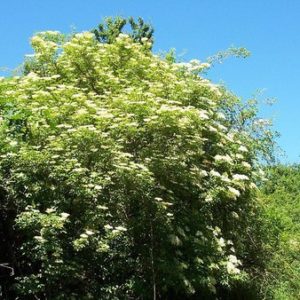
Elderberry / Common Elder Seed
Sambucus nigra£6.00 inc. VATElderberry is a large shrub or small tree with rugged bark and 5 to 7 leaflets. The leaves smell a bit odd. It bears flattened heads of white flowers in early summer which give rise to dense bunches of small black fruits. The fruit famously makes a good wine or can be used to flavour gin. The flowers are used to make cordial or champagne. It grows well on chalk and is being harvested commercially for both flowers and berries. Common in larger hedges and wood margins. It is excellent for wildlife – insects on the flowers and birds for the berries.
-
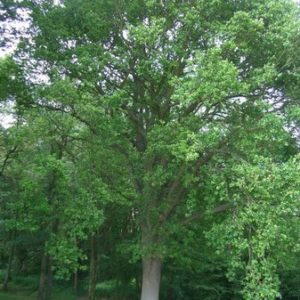
English Oak / Common Oak Seed
Quercus robur£5.00 – £7.50 inc. VATThe English Oak makes a large, impressive, long lived tree, an icon of the British countryside! It develops a large head of rugged branches. The deciduous leaves are stalkless, auricled at the base with shallow lobes and turn a good yellow and copper in the autumn. The acorn fruits are attached to the tree by a slender stalk. It plays host to masses of wildlife that depend on it. The auricles are one of the ways of distinguishing between English Oak and Sessile Oak.
Not for forestry purposes.
-
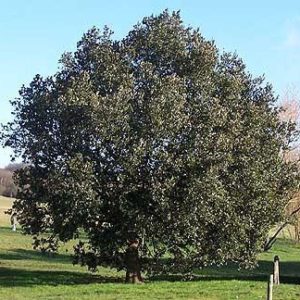
Evergreen / Holm Oak Seed
Quercus ilex£6.50 – £10.00 inc. VATThe Holm Oak is a large evergreen tree with an attractive corrugated bark. The leaves are a dark glossy green not unlike holly but vary in shape and size. It can become deciduous in the very coldest areas but is an excellent tree for coastal areas.
Not for forestry purposes.
-
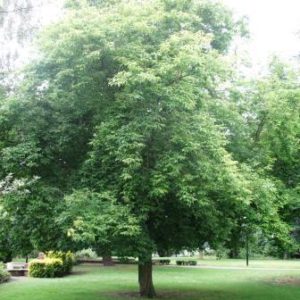
Field Maple Seed
Acer campestre£5.00 inc. VATField Maple is a pretty, medium sized deciduous tree often seen forming parts of hedgerows although it makes a good small specimen tree too. The five-lobed leaves turn bright yellow in autumn and may be flushed red. The miniature sycamore-type winged seed are quite often pink too, before they ripen. When young this tree will tolerate quite deep shade, but requires more light to flower and fruit. Insect friendly
-
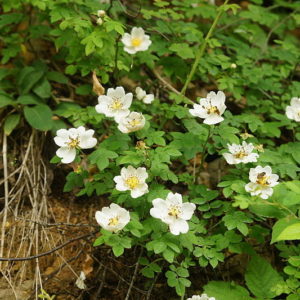
Field Rose Seed
Rosa arvensis£5.00 inc. VATField rose, native to Europe, is a rambling rose of the hedgerows and woodland, quite scarce in the north. Its long arching stems produce pure white scented flowers from early summer onwards. These give rise to round red rose hips in autumn. Can be pruned hard to a tidier shape, but good as part of a wilder garden. Attractive to insects and birds for the hips eventually.
-
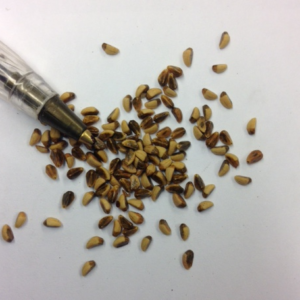
Firethorn Seed
Pyracantha coccinea£5.00 inc. VATFirethorn or Pyracantha is a large evergreen shrub that is valued for its outstanding display of red autumn berries. These are produced from the white flowers that appear in spring. Its dark green leaves are augmented by sharp thorns which when used as a boundary plant provide an effective security barrier.
-
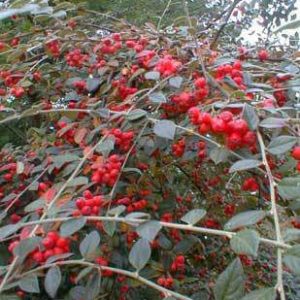
Franchet’s Cotoneaster Seed
Cotoneaster franchetii£6.50 inc. VATFranchet’s Cotoneaster is a popular semi-evergreen shrub that is graceful and medium sized with sage green foliage. The white flowers blushed with pink give rise to ovoid scarlet-orange fruits. Soft relaxed growth can be pruned in to shape.
-
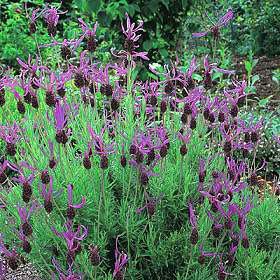
French Lavender Seed
Lavandula stoechas£5.00 – £10.00 inc. VATFrench Lavender is an intensely aromatic shrublet with narrow grey leaves. The dark purple flowers are borne in dense terminal heads which are topped by prominent purple bracts, very attractive to bees. Plants require a warm sunny position and are often used as a low, informal hedge which needs to be lightly trimmed after flowering. It has a more acid scent than English Lavender
-

Gagnepain’s Barberry Seed
Berberis gagnepainii£7.00 inc. VATA small evergreen shrub that forms an impenetrable thicket making it ideal for hedges. The yellow flowers are borne in clusters of 6 or 12, in early summer, which give rise to black berries with a bluish bloom. Tolerant of most conditions.
-
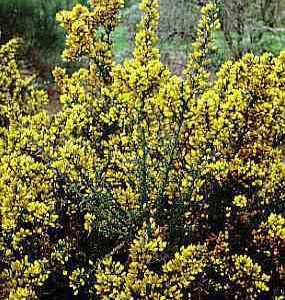
Gorse Seed
Ulex europaeus£5.00 – £10.00 inc. VATGorse is a dense fiercely spiny shrub. In mild areas the yellow, pea-like flowers, smelling of coconut, are produced throughout the year but more usually they flower from March through to May. Brilliant for insects. The shrubs thrive on, and prefer, very poor light or stony soils. They can act as good pioneers, nursing other less tough plants until they’re big enough to survive. No maintenance necessary, but can be pruned quite hard (using armoured gloves!)
-
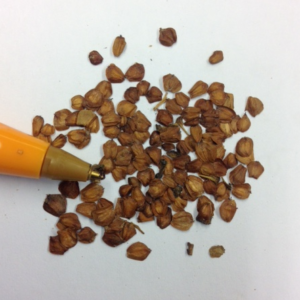
Grey Alder Seed
Alnus incana£5.00 – £12.00 inc. VATGrey Alder is an ideal small tree or bush for cold and wet situations. This very hardy tree has grey undersides to its leaves with yellowish brown catkins which are borne in late winter. The leaves are pointed at the end which makes it easier to distinguish between this and A. glutinosa. It has root nodules, as with other Alders, that fix nitrogen from the air and therefore helps with soil fertility – good for sites that need pioneers.
Not for forestry purposes.
-
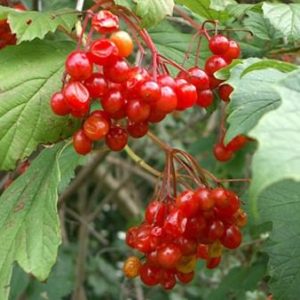
Guelder / Guilder Rose Seed
Viburnum opulus£5.00 inc. VATGuelder Rose is a large vigorous shrub with 5 lobed maple like leaves which colour well in autumn. It produces flattened clusters of white flowers, (a bit like hydrangea flowers), in summer followed by red translucent fruits in the autumn, beloved of winter migrant birds. Can be pruned/trimmed in winter, quite hard. This is one of the prettiest seeds around – they are heart-shaped and various shades of pink!
-
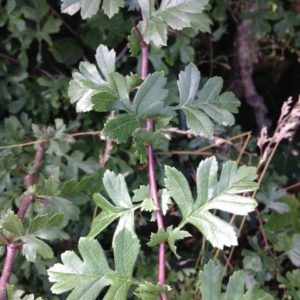
Hawthorn Seed
Crataegus monogyna£5.00 inc. VATHawthorn is a British native hedging plant. It produces a spectacular profusion of flowers in late spring which are visited by all sorts of different insects. There are red-brown fruits (haws) in the autumn. Hawthorn can make a large shrub or a small tree. It is also known as May or Quickthorn and is surrounded by superstition and folklaw. It is associated with May-Day and other spring festivals. Even in Anglo-Saxon times it was used to mark boundaries and it is one of the most common hedgerow trees, being amenable to chopping, laying, flail mowing etc
The 2nd small picture shows unusual hawthorn topiary at Bryan’s Ground Garden in Hereford and 3rd pic is seed being stratified in our fridges, mixed with damp peat.
-
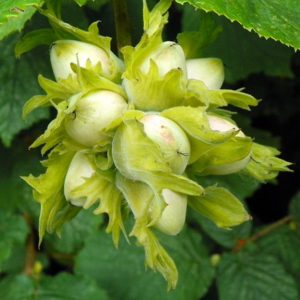
Hazel / European Hazel / Cobnut
Corylus avellana£5.50 inc. VATHazel is a large shrub or small multiple stemmed tree that produces delicate, yellow, long female catkins called lambs tails in late winter. Visited by very early insects It is used in large gardens as a shrub for screening. It produces the edible hazelnut. Every 8-10 years the long stems that have grown can be chopped down to very near ground level and the crown will start to grow again. This is Coppicing(pic is a mature coppice in Ireland)and is great for wildlife, since it provides dappled shade and open spaces. The resultant timber can be used for baskets, chairs, burning, turning and weaving into fences. Commercially selected varieties are grown for nuts in Kent, but also in Turkey for chocolate and chocolate spread manufacture (no names mentioned, ambassador!)
-
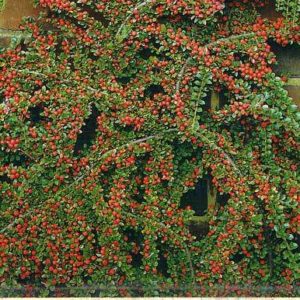
Herringbone Cotoneaster Seed
Cotoneaster horizontalis£5.00 – £10.00 inc. VATHerringbone Cotoneaster is low growing deciduous shrub with branches arranged like fish bones. It can be pruned quite hard without suffering. It bears bright red fruits in autumn together with a richly coloured foliage, and the branch arrangement in winter if grown against a wall is most attractive. The bees really enjoy the pink flowers, but the birds are slow to eat the berries.
-
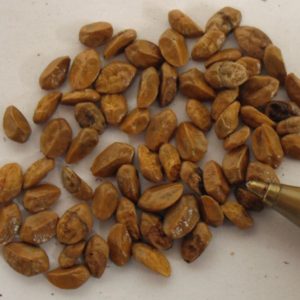
Himalyan cotoneaster seed
Cotoneaster simonsii£5.00 – £11.50 inc. VATCotoneaster simonsii is a large upright semi-evergreen with small white/pink flowers in June, bee friendly, followed by persistent red berries. Good as an informal hedge but can also be clipped quite hard into shape. Often known as Himalayan Cotoneaster, but this leads to confusion with other Cotoneasters.
-
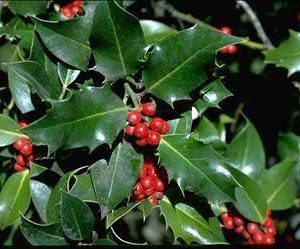
Holly Seed
Ilex aquifolium£5.00 inc. VATAn evergreen shrub or tree that can be very long lived with leaves that are ovoid, shiny and generally spiky. In winter, bright red holly berries contrast beautifully with the dark green foliage. There are some varieties with yellow berries, and some with non-spikey leaves. Usually a male and a female tree are required to produce berries on the female. Very useful for hedging, it grows quite fast to begin with but slows down as it ages. It can be clipped into shape(carefully!)
-
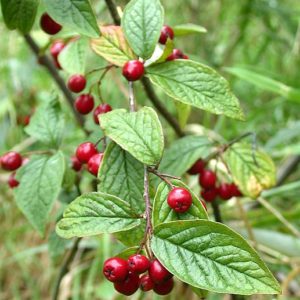
Hollyberry Cotoneaster Seed
Cotoneaster bullatus£6.00 inc. VATHollyberry Cotoneaster is one of the larger cotoneasters. It is deciduous with corrugated leaves that colour richly in the autumn. The white or pink flowers give rise to large red fruits in early autumn which are attractive to birds. It is quite often used in landscaping schemes, roadsides etc and soon spreads, birds taking the berries and spreading the seed. It can be seen a menace but is useful on inhospitable sites.
-
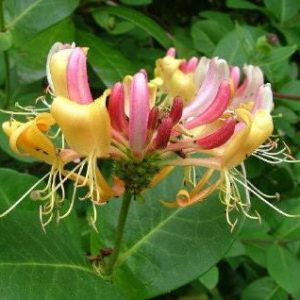
Honeysuckle / Woodbine Seed
Lonicera periclymenum£2.00 – £7.00 inc. VATHoneysuckle is a vigorous medium sized climber. The flowers are up to 5cm long and fragrant, cream inside and purple / yellow on the outside. They flower from early summer through to early autumn and are followed by red berries. Bees love the flowers and birds eat the berries. It is one of the first plants to show leaf in spring, especially in the shelter of woodlands.
-
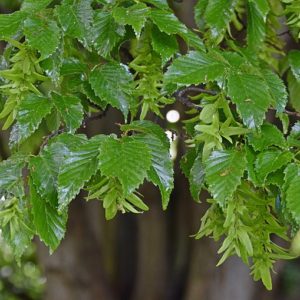
Hornbeam Seed
Carpinus betulus£5.00 inc. VATHornbeam grows to be a medium sized tree with a grey fluted trunk and toothed green leaves that are an outstanding yellow colour in the autumn. The green catkins in spring give rise to the small winged nuts in the autumn. Can be clipped with impunity and so is brilliant as a hedge where Beech is not suitable or would struggle.
Not for forestry purposes
-
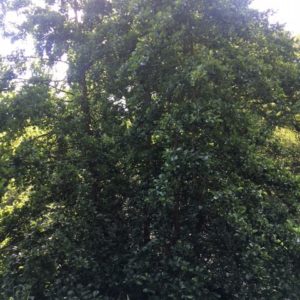
Italian Alder Seed
Alnus cordata£5.00 – £10.00 inc. VATA splendid medium sized, deciduous conical tree, with bright green glistening foliage preceded by yellow catkins that appear in the late winter. Like other Alders, it ‘fixes’ nitrogen from the air, so helping soil fertility. Because of this and the fact that it is tough and hardy, it is often used in the planting and reclamation of old industrial sites. The reddish orange timber is not very durable in air but is long-lasting in water. The blackish cones that hold the seed in autumn are larger than the native Alder cones, and quite decorative.
-
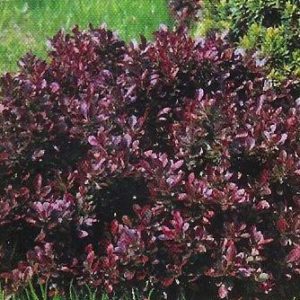
Japanese Barberry Seed (purple leaved)
Berberis thunbergii atropurpureum£5.00 inc. VATA small deciduous, prickly shrub with a rich reddish purple foliage which grows more intense as the year progresses. It produces an outstandingly impressive low hedge.
-
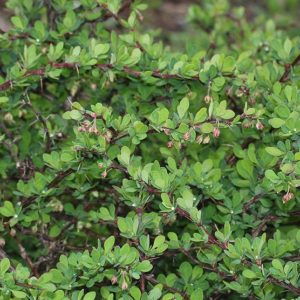
Japanese Berberis Seed
Berberis thunbergii£5.00 inc. VATJapanese Berberis is a small, compact deciduous shrub. It’s autumn colours are outstanding together with its bright red berries. Late in spring it bears pale yellow flowers tinged with red. Insect friendly A useful shrub for creating a low prickly barrier. It can be clipped(carefully!)
-
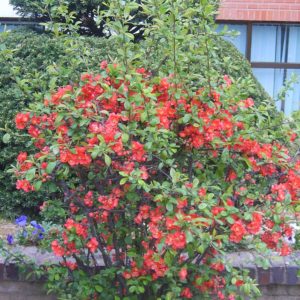
Japanese Flowering Quince Seed
Chaenomeles lagenaria£5.00 inc. VATJapanese Quince is a beautiful and early flowering (February to June) shrub. It is often used for Bonsai as its small bright orange flowers are shown off to marvellous effect. It is very similar to ‘Japonica’ (C. japonica,) but grows larger. In mild winters it retains some leaves. The stems are thorny and straggly but it can be pruned. It is probably best grown trained against a wall. There are a number of named varieties with flowers varying from red to pale pink and white.


Sign up to receive great news and offers